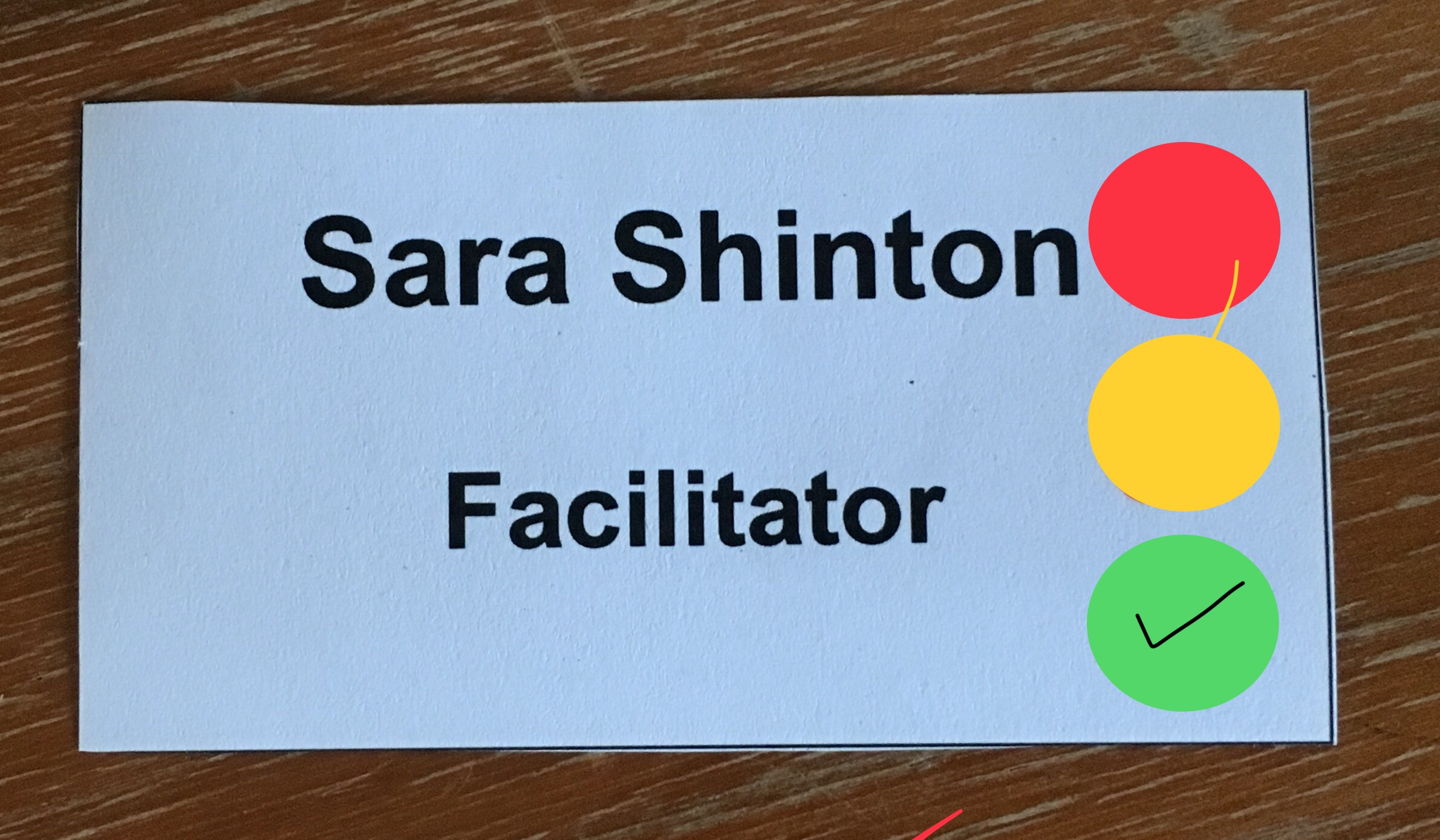
Today’s post on this week’s mental health theme considers academic conferences. For some, conferences are one of the perks of the academic lifestyle – a chance to travel, immerse yourself in new ideas, meet interesting people and see your own research through fresh eyes. But if you are currently in a barren patch with your research, struggling with imposter syndrome, uncomfortable and exhausted by networking, or balancing research with other demands, conferences can be debilitating. Add to this the persisting acceptance (resigned or otherwise) of bad behaviour at conferences (Eurovision fans may have seen this recent reworking of “it’s more of a comment than a question“) and it’s no wonder that conferences can feel more like a trial to endure than a reward.
At the joint learned societies mental health event in early May, we talked about conferences and shared a few examples of how they might be tweaked to be kinder, more inclusive places. One great idea was the traffic light system on conference badges which I’ve recreated above. I can’t remember which conference this came from so please let me know and I’ll give credit. This is a beautifully simple idea. If you don’t want to talk to anyone, tick the red light. If you are happy to talk to people you know, tick amber. And if you will talk to ANYBODY, then tick green. There was probably more to this than I’m reporting, but I thought it was a great idea to help nervous networkers approach people, to help introverts enjoy some peace and to help offset some of the power differentials at conferences. I’m guessing you can change the “setting” during the conference and I would be tempted to add a few other lights – perhaps a purple one for when I’m feeling a bit vulnerable so you don’t come and challenge me too robustly or a turquoise one to say “I’m here alone, so please ask me to join you at lunch” (that’s the voice of my younger self you hear plaintively calling there…)
Another idea is to offer childcare (or other care) at conferences. We do this for the Ingenious Women programme that we run at Edinburgh and at the new national programme we are running with Scottish Government funding. This means that those with caring responsibilities can still engage and by having children at the conferences we show that you can have kids, spent time with them and still be an effective and successful researcher.
At an upcoming conference I’m involved in, we’re planning to have a Stress Awareness Space using the fantastic, simple resource from MIND which includes posters and downloadable stress awareness cards. For our conference this is a bit of a given because it’s about researcher mental health, (Please come along – it’s on June 14th in Edinburgh and we’d love to see you there). However, I’d like to include this space at our other events and think it would be particularly powerful at research conferences. Wouldn’t it be great if we could ask everyone to complete a card as they register and to sign it IF they were happy to. It’s interesting to imagine what the impact on our researcher community might be if we were happy to share what we struggled with and show that people’s external demeanour isn’t necessarily what they feel on the insides. This could be another step towards a more inclusive culture.
At the Oscars, Frances McDormand talked about the opportunity the powerful had to improve things in the film world by insisting on inclusion riders, a phrase that Stacy Smith described in her TED talk about sexism. Most conferences are badged or organised by big organisations that claim to want to support more inclusive cultures. Has the time come for an academic conference inclusion rider?

